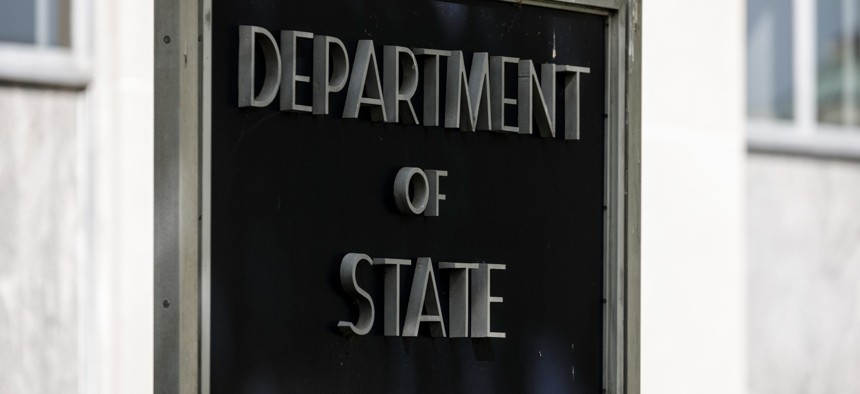State Department taps assessment-based hiring process for data scientists

James Leynse/Getty Images
The department hit its applicant cap in one day after posting a job listing seeking 50 data scientists.
The State Department is looking to hire at least 50 data scientists using an assessment-based hiring process called the subject matter expert qualification assessments, or SME-QA.
So far, it appears to be going well—the department's first job posting opened April 22, and by the end of the day, the 250 applicant cap had been maxed out.
The department upped that maximum to 400 and re-opened the announcement on Tuesday, said Joel Nantais, chief data scientist at the department. That opening closed Tuesday when it hit 400 applicants.
"We're just thrilled with the excitement of individuals to apply for these roles at the department," Nantais said. "We're really excited to bring on additional colleagues throughout different bureaus here at the Department of State and have them working with us to contribute to really data-driven diplomacy here."
This isn't the first time the State Department has used the SME-QA process, which has been used several times already both for government-wide and agency specific hiring initiatives. The State Department hired data scientists through a government-wide data scientist hiring action with the SME-QA process last year.
The process differs from the traditional competitive hiring process in government by involving subject matter experts at the agency, who help human resources experts drill down on what proficiencies a job requires and subsequently review resumes and skills assessments from applicants.
A key difference is the replacement of a self-reported occupational questionnaire traditionally used in federal hiring with assessments, which at State will involve testing for data science skills.
Applicants who do well on the resume review and assessments are forwarded to all State Department hiring managers who are interested, at which point they can set up more in depth conversations with applicants about specifics of the roles available in their office, Nantais said.
Compared to the traditional hiring process, SME-QA helps the department build economies of scale and make the process easier for applicants, said Nantais. It's also likely more familiar to applicants that have more experience with applying to jobs in the private sector than the government.
For this specific hiring initiative, the expectation is to onboard people "well before the end of the calendar year," said Nantais. "The sooner we can make offers and people can accept those offers the sooner we can get security clearances."
The new hires will be working across the department—at least 18 bureaus are interested in hiring—at GS levels 13 and 14, said Nantais.
"It's hard to find an office here where they don't have a need for bringing people on board to help that mission, whether it's specifically on the foreign policy side or on the management of the State Department side," he said.
As far as what they'll be working on, "we have data scientists at the department working on, honestly, all of the administration's top challenges," Nantais said.
"Strategic competition with China; diversity, equity and inclusion here at the department; working on cybersecurity issues – all of the top goals for this administration and our secretary have different offices that are now also leveraging data analytics on those issues," he continued.
Being able to use this hiring tool within the department alone, as opposed to the SME-QA hiring process the department participated in last year that spanned several agencies, is also helpful because of the State Department's unique mission, said Nantais.
"The Department of State is a foreign policy agency. We're not a statistical agency, we're not necessarily a regulatory agency, so data science skills sets may look a little bit different here at the department than they would look at another agency," he explained. "We have a lot of folks with social science degrees—foreign policy, international relations, political science … so I think that's a little bit unique here."
Ultimately, the hiring is going to help drive the implementation of the department's first-ever enterprise data strategy, released last December, and its modernization agenda, Nantais said.
"Our real emphasis and growth over the past couple years [is] on leveraging data analytics for foreign policy and management the challenges here at the Department of State, and that's really, really expanded over the past few years, which drives this need."



